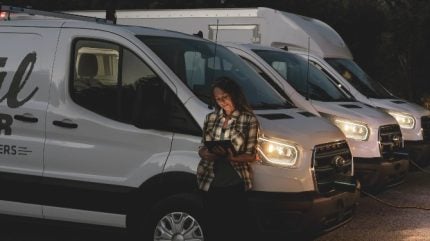
Wanda Young, Global CMO/CX, at Ford Pro (Ford’s commercial vehicle business unit) has laid out the basics of the case for commercial vehicle fleets to consider going electric.

Discover B2B Marketing That Performs
Combine business intelligence and editorial excellence to reach engaged professionals across 36 leading media platforms.
At a recent MIT event, she shared insights from Ford’s business and government customers who are ‘leading large-scale electrification’.
“We believe the commercial sector will continue to lead the electric vehicle revolution, much like businesses spearheaded the early adoption of computers, ” she said.
Ford maintains that commercial customers view vehicle acquisition through a very different lens than personal buyers. It says that while personal buyers may prioritise an emotional connection to a brand and aesthetics, businesses, public agencies, and organisations focus on their operational and practical needs, including total cost of ownership (TCO) during the lifecycle of the vehicle and vehicle performance to get the job done.
Yet, Ford says only 6% of fleet decision-makers and business owners surveyed have adapted their TCO calculations to account for electric vehicles. This, Ford maintains, means they are overlooking a compelling business case to go electric.
Ford says electric vehicles’ overall TCO is often lower due to lower fuel costs and lower scheduled maintenance costs. For example, Ford states that scheduled maintenance costs for the E-Transit van are estimated to be 48% less than the average scheduled maintenance costs for a gasoline-powered 2024 Transit van over 5 years/75,000 miles (whichever comes first).
Ford also points out that incentives and tax breaks for vehicles and charging infrastructure in the US can also help to lower upfront costs, an additional electrification “dollars and cents” benefit for businesses.
In the US, Ford Pro electric vehicles potentially qualify for up to a $7,500 commercial tax credit through the Inflation Reduction Act. Customers can also receive up to a 30% tax credit (maximum of $100,000) on charging and alternative fuel equipment and installation costs, Ford points out.




